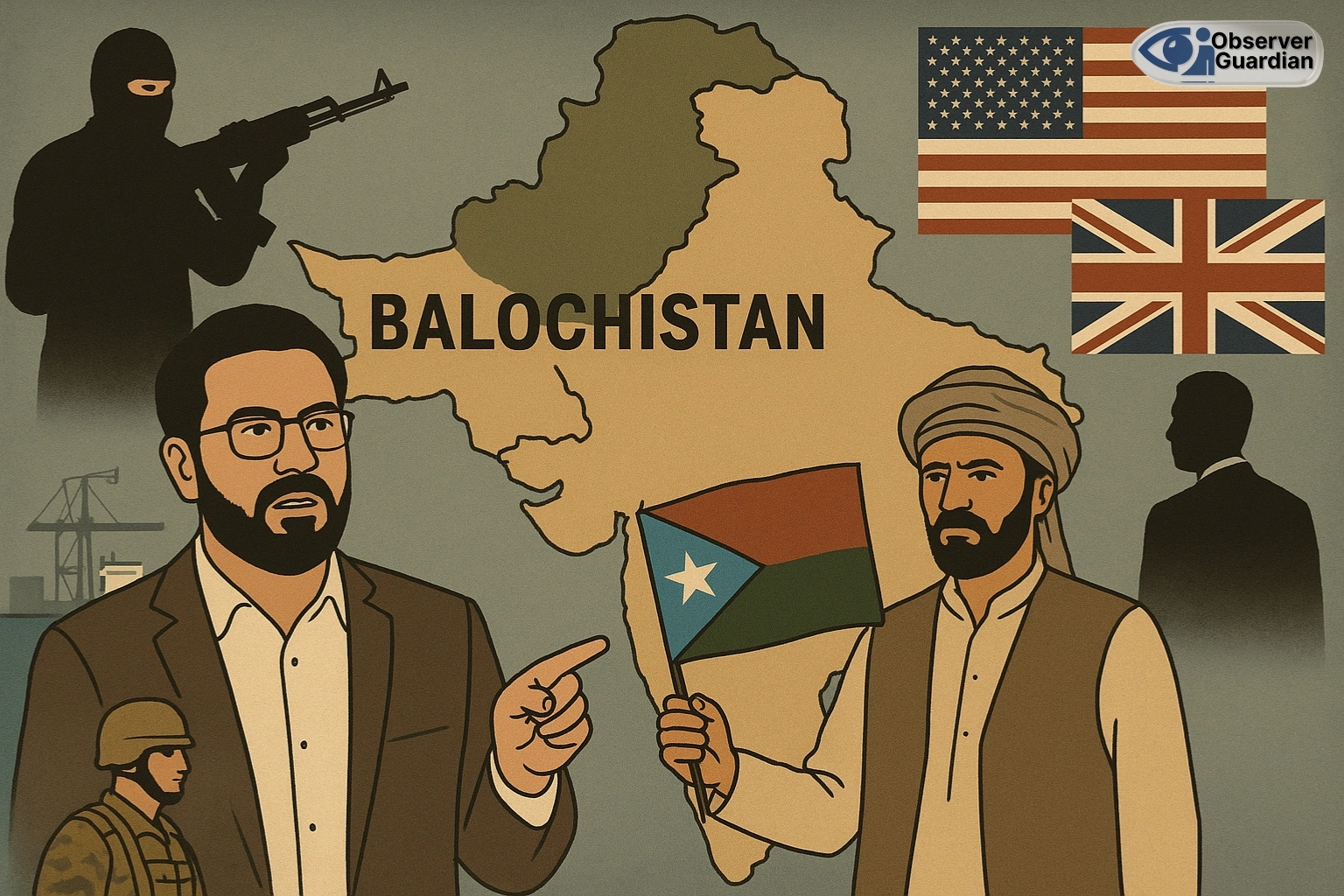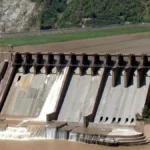Recently, the emergence of Abdul Samad Yaqoob, a PTI candidate in Multan NA-152 was a case study of selective narration and falseness of facts. Yaqoob repeated accounts that fit the discourse of terrorists on a medium that is commonly known to be an organ of propaganda. He was presenting a one sided and distorted image of the Balochistan conflict by trivializing US designation of the Baloch Liberation Army (BLA) and the Majeed Brigade as a symbolic gesture, terming the full onset of the Baloch populace as BLA militants, and obscuring historical figures. Taking a closer inspection into the facts, we see a completely different strategic and historical reality.
Proxies used by Indians against Pakistan
The role of India in destabilizing Balochistan is not a speculation or a conspiracy so much, it is even in policy. Indian National Security Adviser Ajit Doval has publicly explained the so called defensive offence doctrine, which entails the use of Balochistan as a pressure point vis-a-vis Pakistan. It is not meaningless talk. In 2016, serving Indian navy officer Kulbhushan Jadhav was arrested in Balochistan, which revealed a large RAW network that provided insurgents with funding, intelligence, and other logistical support.
This pattern of operation of the BLA, specifically its focus on the Chinese as well as on individual Chinese targets, CPEC works, security infrastructure and civilian laborers mirrors that of the aim of proxy operations by a hostile state. Once the United States and the United Kingdom declare the BLA and its Majeed Brigade as terrorist organizations in the formal designation, they are backed by the law and counterterrorism mandates. By arguing as Yaqoob did that it is only a symbolic form of prescription, one fails to acknowledge the fact that under international law such proscription is tantamount to assisting terrorism.
The accession of Kalat
A conspicuous example of the misrepresentation of one of those matters which Yaqoob attends to, related to the accession of State of Kalat. He did not pay much attention to the law and the political reality of 1947. Kalat was not a sovereign, internationally accepted state, it was a princely state with British suzerainty.
Three of the major regions of the state of Kalat Kharan, Las Bela, and Makran joined Pakistan in March 1948, leaving Kalat surrounded geographically. On 27 March 1948 Khan of Kalat Mir Ahmad Yar Khan signed the Instrument of Accession to Pakistan which the Governor General Muhammad Ali Jinnah accepted on 31 March 1948. This became a process which was reflective of the accession of other princely states that went on either India or Pakistan. Therefore, the fact that Kalat united with Pakistan, is not a contested issue but rather that it is, both historically and legally, a closed case.
Distortion of Past Figures
Yaqoob tried to have Peter endorse his story by referring to two historical people, Prince Abdul Karim and Nauroz Khan. His omissions misrepresent their legacy though.
Prince Abdul Karim (1948): Abdul Karim was a younger brother of the Khan of Kalat who refused to accede to the leadership and rebelled inciting an armed uprising, to the point of seeking foreign help in Afghanistan. Unfortunately, his uprising failed as he did not receive local mass support, and the firm’s foreign assistance was not provided. He was later brought to jail. More importantly, this was not an act of nonaggressive political disagreement but an armed uprising against the state.
Nauroz Khan (1958): Nauroz Khan led an armed rebellion against the government occasioned by the imposition of the One Unit policy. Even though he ultimately turned himself over on promises of amnesty, he avoided charges of treason and was imprisoned when he died in 1964. By presenting the case of Nauroz Khan as a case of a victim, Yaqoob overlooks the fact that the former had been armed against the government, not involved in nonviolent political activism.
By not mentioning these very essential details, Yaqoob sets up the grievance narrative by whitewashing the armed aspect of these rebellions and labels insurgents as political dissidents.
Abdul Samad Yaqoob Credibility and Narrative Bias
Though it is also necessary to put the perspective of Yaqoob in context. Being a previous PTI electoral candidate, he speaks in a political context as opposed to the authority of impartial historical analysis or research of conflicts in general. His presentation conveniently limits the BLA history to the minimization of its history of terrorism and its targeting of people, infrastructure, and transnational development.
Erasing the recorded Indian financing of radical groups and the military character of the previous uprisings, he displays a story that equals foreign propaganda needs of controlling the dramas of Balochistan, more than it translates to multifaceted realities.
Getting the Record Straight
Balochistan is in fact not devoid of real problems including weaknesses of governance, backwardness, and lack of political representation. Nonetheless, the admission of such challenges should never be at the expense of historical accuracy and reality of national security.
The case of Kalat in March 1948 is one of the documented law and history.
Prince Abdul Karim and Nauroz Khan were not innocent activists and instead, were armed insurgents who had picked up weapons against the state.
The NSA India has openly acknowledged utilizing Balochistan as one of the covert tools of New Delhi and the most blatant evidence of applying this tool was provided in the case of Kulbhushan Jadhav.
The ban on the BLA and Majeed Brigade by the US and the UK is not mere fake stage performance. It is a legal declaration that it has become a terrorist group.
An attempt to remove these facts as has been by Abdul Samad Yaqoob is to deprive the Baloch people their right to peace and security and development. It is simply fulfilling the interest of the people who want to destabilize Pakistan about proxy warfare.
The statement of Abdul Samad Yaqoob in the sense of Republic TV speaks of propaganda narratives rather than the actuality of Balochistan. His partial highlighting of the past and security policies fits into the talking points prejudicial to the interests of malevolent external interests. Its opposing to the perpetuity of Pakistan. The reality remains that the Baloch are entitled to empowerment, inclusion, and development and not to become objects in secretive operations. Any accountable discussion on Balochistan should be based on historical facts, legal records and other records available not propaganda that has been crafted to overreach a certain audience.
Disclaimer: The views and opinions expressed in this article are exclusively those of the author and do not reflect the official stance, policies, or perspectives of the Platform.










